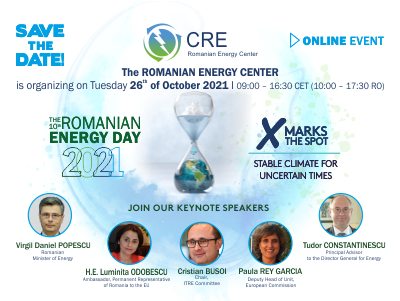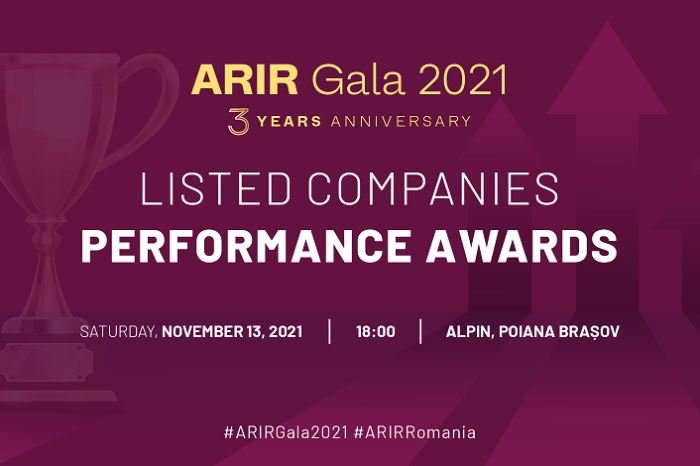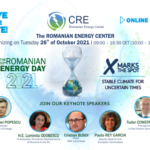Romanian Energy Center organizes new edition of Romanian Energy day on October 26

In less than a week, the Romanian Energy Center association organizes on October 26 a new edition of the Romanian Energy Day conference, an event that for 10 years has represented the Romanian and regional energy sectors in Brussels.
As we move toward the end of 2021, a global energy crisis is sending shockwaves through economies and industries around the world. In addition to immediate shortages and rising prices, this crisis could also foreshadow the consequences of a poorly managed energy transition.
In an exceptional context, EU energy imports continue to be high in the post-quarantine recovery period, and energy prices (electricity, oil, and gas) are at record highs. European leaders are involved in a concerted effort to protect citizens and the business environment, which can be positive in the context of the European project and strengthen the cohesion of Member States.
Globally, we see the irreversibility of climate change. Every second humanity emits 1,300 Mt of CO2 into the atmosphere, probably reaching the point of no return on limiting the rise in global temperature. From the development of energy-efficient products to the development of alternative fuel systems, such as hydrogen and the associated infrastructure, the reconfiguration of the global energy sector will require large-scale cooperation.
At regional level, the European Union is committed to reducing emissions by at least 55% by 2030, the current decade being key to climate action. The ultimate goal is climate neutrality by 2050. The deadline seems distant, but the challenge is massive. So, in a change as profound as the energy transition, the most complicated component is the change in mentality, which we will all have to accept in order to implement it.
“Right to the target. Stable climate for uncertain times,” Romanian Energy Day 2021 is adapted around the European Green Deal and the” Fit for 55 “program and will try to segment the European Union’s Climate Action Strategy into its main pillars, namely energy, buildings, transport, industry , as well as the perspectives of the Romanian energy industry regarding the transition to low carbon emissions.
Registrations for the event -> click here













